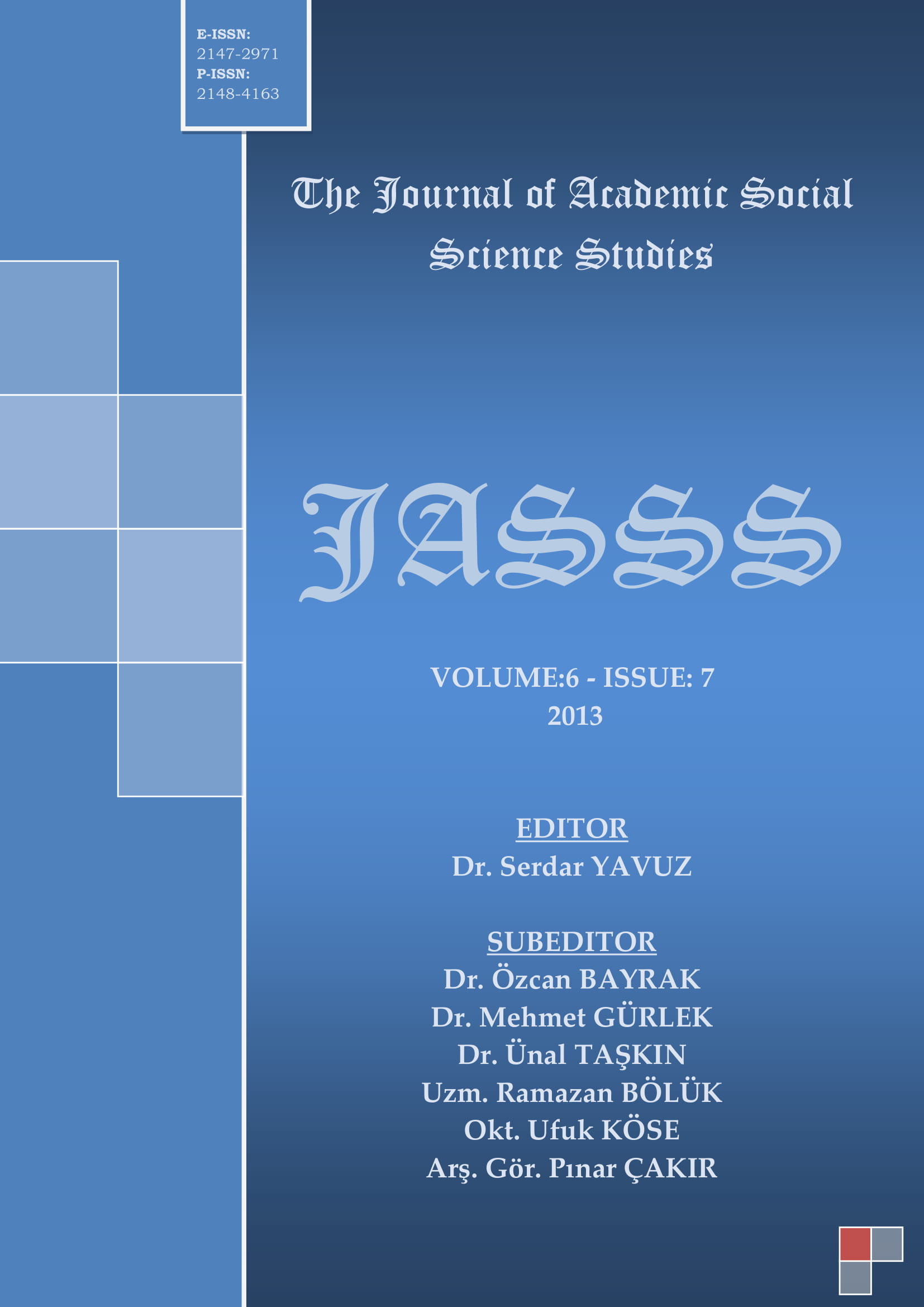Author :
Abstract
Bu araştırmanın amacı, tasarruf bilincine sahip bireylerin yetiştirilmesinde coğrafya eğitiminin yerini ve önemini ortaya koyarak coğrafya biliminin gelişimine katkı sağlamaktır. Belirlenen amaç doğrultusunda elde edilen sonuçların değerlendirilmesi ile hem doğal ve beşeri kaynakların sürdürülebilirliğine yönelik adımlar atılabilecek, hem de alınacak önlemler ve yapılacak düzenlemeler ile ülke ekonomisine katkı sağlanacaktır. Araştırmayı uygulayabilmek amacıyla 2009-2010 Eğitim Öğretim yılında Ordu İli merkez ilçesinde Ortaöğretim 9. ve 12. sınıfta öğrenim gören 498 öğrenciye anket uygulanmıştır. Araştırmanın alt problemlerinin çözümlenmesinde; tek yönlü varyans analizi (ANOVA) yapılmış; frekans, yüzde ve aritmetik ortalama değerleri kullanılmıştır. Elde edilen bulgularda cinsiyet ve sınıf değişkenine göre anlamlı bir fark olup olmadığını belirlemek amacıyla t-testi uygulanmıştır. Araştırma sonucu elde edilen verilere göre; öğrencilerin tasarruf bilinci oluşturmasında aile ve eğitim en önemli etkenlerdir. Araştırmaya katılan öğrencilere göre, ortaöğretim kademesinde yer alan dersler arasında tasarruf bilinci oluşturmada en etkili olan ders coğrafyadır. Öğrenciler tasarruf konularını öğrenebilecekleri ve öğrendikleri en uygun dersi coğrafya olarak belirtmişlerdir. Tasarruf bilinci düzeyi bakımından 9. sınıf öğrencileri ile 12. sınıf öğrencileri arasında 12. sınıf öğrencilerin lehine; sözel bölüm öğrencileri ile sayısal bölüm öğrencileri arasında sözel bölüm öğrencilerin lehine anlamlı fark ortaya çıkmıştır. Bu sonuçlar ise öğrencilerin aldıkları coğrafya eğitimi arttıkça tasarruf bilincine sahip olma düzeylerinin de arttığını ortaya koymuştur. Ayrıca, gelir seviyesi arttıkça tasarruf bilincinin azaldığı ve kız ile erkek öğrenciler arasında tasarruf bilinci bakımından anlamlı bir fark olmadığı sonucuna ulaşılmıştır.
Keywords
Abstract
The main objective of this research is to contribute to the development of the science of geography by explaining the place and importance of geography education in creating people with saving consciousness. I believe that this research will help us both to take a step towards achieving human capital sustainability and to pioneer in contributing largely to the national economy with precautions taken and regulations introduced, by evaluating the results obtained at the end in line with the determined purposes of this study. To conduct the study a questionnaire is designed for 498 students in the 9th and 12th grades of a high school in the main district of the City of Ordu in the 2009- 2010 academic year. In order to analyze the sub-problems of the study, one way analysis of variance (ANOVA) is applied and the frequency, percentage and mean are utilized. In order to determine whether there is a significant difference in terms of gender and class variables, the t-test is used. 0.05 is assumed to be the level of significance for the study. According to the findings obtained from the research, family and education are the most effective factors in creating saving consciousness. According to the students attended the survey, in creating saving consciousness among all the classes offered to high school students, the most effective lesson is geography. Besides, the students indicated that geography is the most adequate course in which they have learned and hope to learn saving issues. When we compare saving consciousness of the students, the 12th grade students are significantly better at it then the 9th grade students and social science students are significantly better at it than science students. These findings reveal that the more geography education the students get the more saving consciousness they would have. Moreover, the richer people are the less saving consciousness they would have. In addition, there is no statistically significant difference between female and male students.





